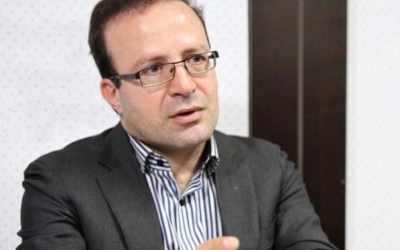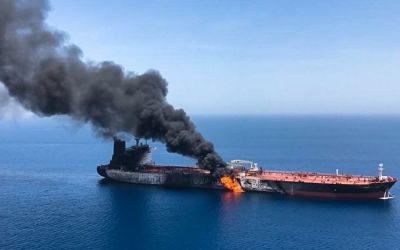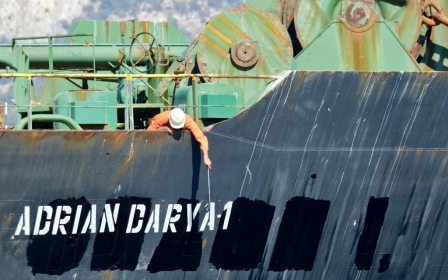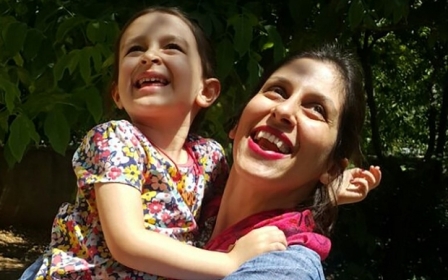British Council worker loses appeal against 10-year sentence in Iran

An Iranian court has upheld a 10-year prison sentence given to a British Council worker on spying charges.
Aras Amiri was visiting relatives in Tehran in 2018 when she was detained and sentenced to a decade in prison for allegedly confessing to spying for the British government, which she denies.
The decision was taken by an appeals court in Tehran over the weekend, killing any earlier hopes that her sentence would be reduced.
Amiri, who is an Iranian national, has permanent residency in the United Kingdom. She was handed her jail sentence for “assembly and collusion against national security”.
The 33-year-old wrote an open letter from prison to Iran’s Chief Justice Ebrahim Raisi, asking him to conduct an investigation into the false charges against her. She said the reason she has been imprisoned was her refusal to spy for the Iranian intelligence services.
“Following my release on bail… the case investigators kept contacting me,” she wrote in the letter, translated by the Centre for Human Rights in Iran (CHRI). “During our third meeting, I turned down their explicit invitation for cooperation and told them I could only work in my specific field, not any other kind of work.”
Iran’s judiciary spokesperson said that Amiri was a student in Britain before being recruited by the British Council to run its Iran desk, and was in charge of projects for “cultural infiltration” in Iran.
The British Council is the UK’s international organisation for cultural relations and educational opportunities, working in arts and culture, the English language, education and civil society.
The Council had said that Amiri’s role at the organisation was to support and promote Iranian art in the UK and that she had travelled to Iran on a private trip to visit family, not for work.
British Council’s chief executive, Sir Ciarán Devane, expressed disappointment at the news of Amiri’s upheld jail term.
"Further to reports, we would like to express our deep disappointment and dismay that our colleague Aras Amiri has had her appeal against her ten-year sentence rejected by the Iranian authorities,” Devane told the British press.
“We remain extremely concerned for Aras’s safety and wellbeing and continue to refute the accusation levied against her.”
Dozens of foreign nationals in Iranian custody
The decision comes amid tensions between Iran and Britain over the fate of British-Iranian Nazanin Zaghari-Ratcliffe, who was arrested by Iranian authorities in 2016 as she was leaving Tehran.
According to the FreeNazanin campaign led by her husband Richard Ratcliffe, new rules have been issued that place restrictions on her contact with family.
Her daughter Gabriella can only visit her once a month instead of every couple of days and she can no longer place international calls, preventing her from speaking to her husband.
'We would like to express our deep disappointment and dismay that Aras Amiri has had her appeal rejected by the Iranian authorities.'
- Sir Ciarán Devane, British Council’
Zaghari-Ratcliffe, a charity worker who also worked for the Thomson Reuters Foundation, was put on trial and is now serving a five-year jail sentence for allegedly trying to topple the Iranian government. She denies the charges.
The campaign said Zaghari-Ratcliffe told her family from prison: “I am so upset. I feel like I could suffocate. I can’t even think what to do. I haven’t cried so loud in the middle of the ward for ages. How cruel they are. How unjust this is.”
Iran has arrested at least 14 dual or foreign nationals since 2014, many of whom were charged of "cooperating with a 'hostile state'" without sufficient evidence, according to Human Rights Watch.
Last week, a British-Iranian academic, Kameel Ahmadi, was arrested by Iranian authorities and is being detained on charges unknown.
Strained relations
UK-Iran relations are particularly strained at the moment, in part over the hostile takeover of two tankers, an Iranian one off the coast of Gibraltar and a UK-flagged vessel in the strategic Strait of Hormuz waterway.
Iran’s tanker held by British authorities in Gibraltar was released last week, in the hope tensions would subside.
However, Tehran continues to hold a British-flagged oil tanker Stena Impero.
Britain is among some western countries proposing a naval force be deployed on the route, through which a third of the world’s oil passes, in order to protect passing tankers.
Iran has denounced the plans of the US led international maritime security coalition and insisted regional countries could protect the strategic waterway.
Relations between Iran and the West have also been strained since the United States pulled out of a 2015 accord to curb Iran’s nuclear programme and levied economic sanctions on the country and its leaders.
In retaliation, Iran plans to reduce compliance with the 2015 deal if European countries failed to act to protect it from US sanctions.
Iran also has threatened to block all energy exports out of the Strait of Hormuz if it is unable to sell oil - as promised by the 2015 deal - in exchange for curbing its uranium enrichment programme.
Middle East Eye delivers independent and unrivalled coverage and analysis of the Middle East, North Africa and beyond. To learn more about republishing this content and the associated fees, please fill out this form. More about MEE can be found here.






